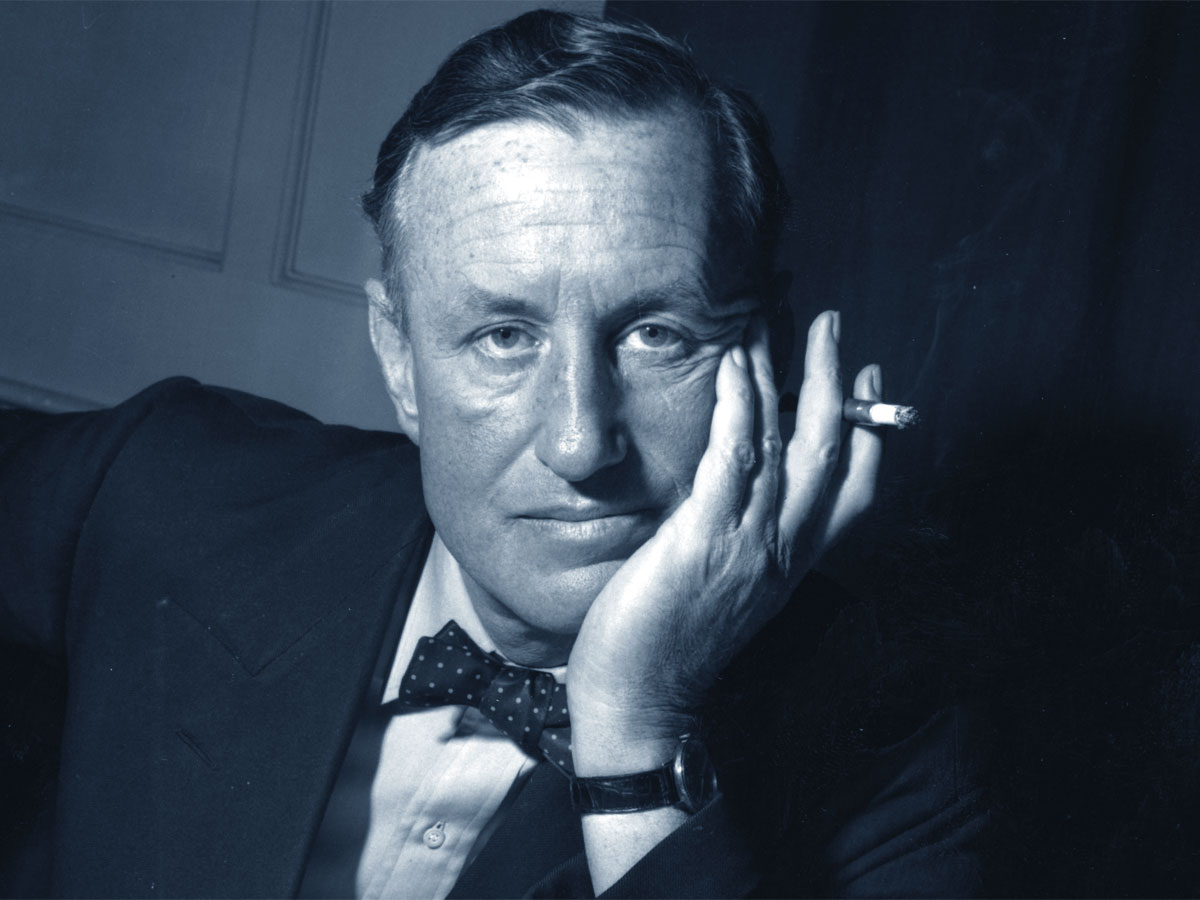Bronze bust of the author Ian Fleming by the British sculptor Anthony Smith. Commissioned by the Fleming family to commemorate the centenary of Ian Fleming’s birth in 2008. Photo: Fortheloveofknowledge / CC BY-SA 4.0 DEED. Cropped.
James Bond, the iconic British secret agent created by Ian Fleming, is often celebrated for his suave demeanor, sharp wit, and unflinching bravery. However, beneath the surface of his thrilling adventures lies a philosophical depth that is often overlooked. One of the most significant philosophical influences on Bond’s character is Stoicism, a school of thought that emphasizes resilience, self-control, and rationality in the face of adversity.
The Stoic Foundations of Bond’s Character
Stoicism, founded in ancient Greece by Zeno of Citium, teaches that the path to a virtuous and fulfilling life lies in accepting the things we cannot control and focusing on what we can. This philosophy is evident in Bond’s approach to his missions and personal challenges. Bond’s life as a secret agent is fraught with uncertainties, dangers, and moral ambiguities. Yet, he consistently demonstrates a Stoic mindset by maintaining his composure and focusing on his objectives, regardless of the chaos around him.
Control and Preparation
One of the core tenets of Stoicism is the distinction between what is within our control and what is not. Bond exemplifies this principle through his meticulous preparation and attention to detail. Before embarking on a mission, Bond ensures that he has gathered all necessary information, partnered with reliable allies, and meticulously checked his equipment. This thorough preparation allows him to operate from a position of strength and adaptability, much like the Stoic ideal of securing one’s base.
Endurance and Resilience
Bond’s ability to endure physical and psychological torture without breaking is another hallmark of his Stoic character. In the face of extreme adversity, Bond remains steadfast, drawing on his inner strength and training to survive and overcome. This resilience is a key aspect of Stoic philosophy, which teaches that true strength comes from within and that external circumstances should not dictate one’s inner peace.
Acceptance of Fate
Stoicism also emphasizes the importance of accepting one’s fate and finding peace in the face of inevitable challenges. Bond’s acceptance of the constant threat of death and his ability to remain focused on his mission despite this looming danger is a testament to his Stoic outlook. He understands that while he can control his actions and decisions, the outcome is ultimately beyond his control. This acceptance allows him to face danger with a calm and rational mindset.
Stoicism & Ian Fleming
Ian Fleming’s background played a significant role in shaping James Bond’s character, including his Stoic traits. Fleming served as a Naval Intelligence Officer during World War II, where he was involved in planning and executing covert operations. This experience exposed him to the harsh realities of espionage, requiring a calm and rational mindset, much like the Stoic philosophy. Bond’s ability to remain composed under pressure and his meticulous preparation for missions reflect Fleming’s own experiences in intelligence work.
Many of Bond’s tastes and traits were directly inspired by Fleming’s own preferences. For example, Bond’s love for golf, gambling, and fine dining mirrored Fleming’s personal interests. These elements of Bond’s character, combined with his disciplined and resilient nature, align with Stoic principles of enjoying life’s pleasures while maintaining self-control and focus.
Fleming was well-read and had a keen interest in various philosophical ideas. His exposure to Stoic philosophy likely influenced his portrayal of Bond as a character who accepts the uncertainties of life and focuses on what he can control. This philosophical depth adds a layer of complexity to Bond’s character, making him more than just a glamorous spy.
Fleming drew inspiration from real-life individuals and events, incorporating elements of their resilience and stoicism into Bond’s character. This blend of reality and fiction helped create a character who embodies the Stoic virtues of endurance, rationality, and acceptance of fate.
Final Thoughts
James Bond is more than just a glamorous spy; he is a character deeply rooted in Stoic philosophy. His ability to remain composed under pressure, his meticulous preparation, and his acceptance of fate all reflect the principles of Stoicism. By embodying these ideals, Bond not only survives but thrives in a world of uncertainty and danger. His Stoic resilience serves as a powerful reminder of the strength that comes from within and the importance of focusing on what we can control.
Resources
The Official Website for Ian Fleming
IanFleming.com
The Official James Bond 007 Website
007.com
*The views and opinions expressed on this website are solely those of the original authors and contributors. These views and opinions do not necessarily represent those of Spotter Up Magazine, the administrative staff, and/or any/all contributors to this site.
